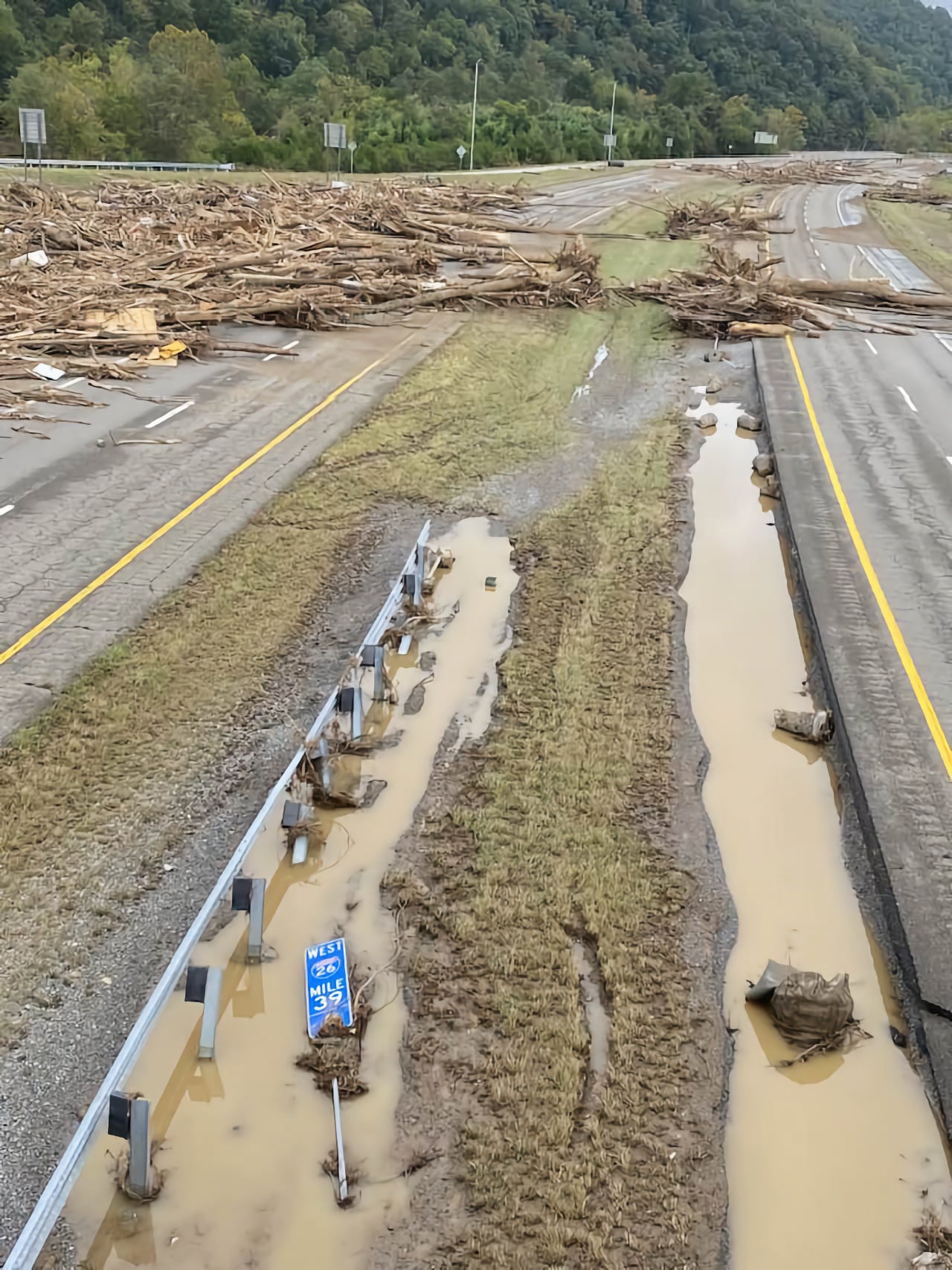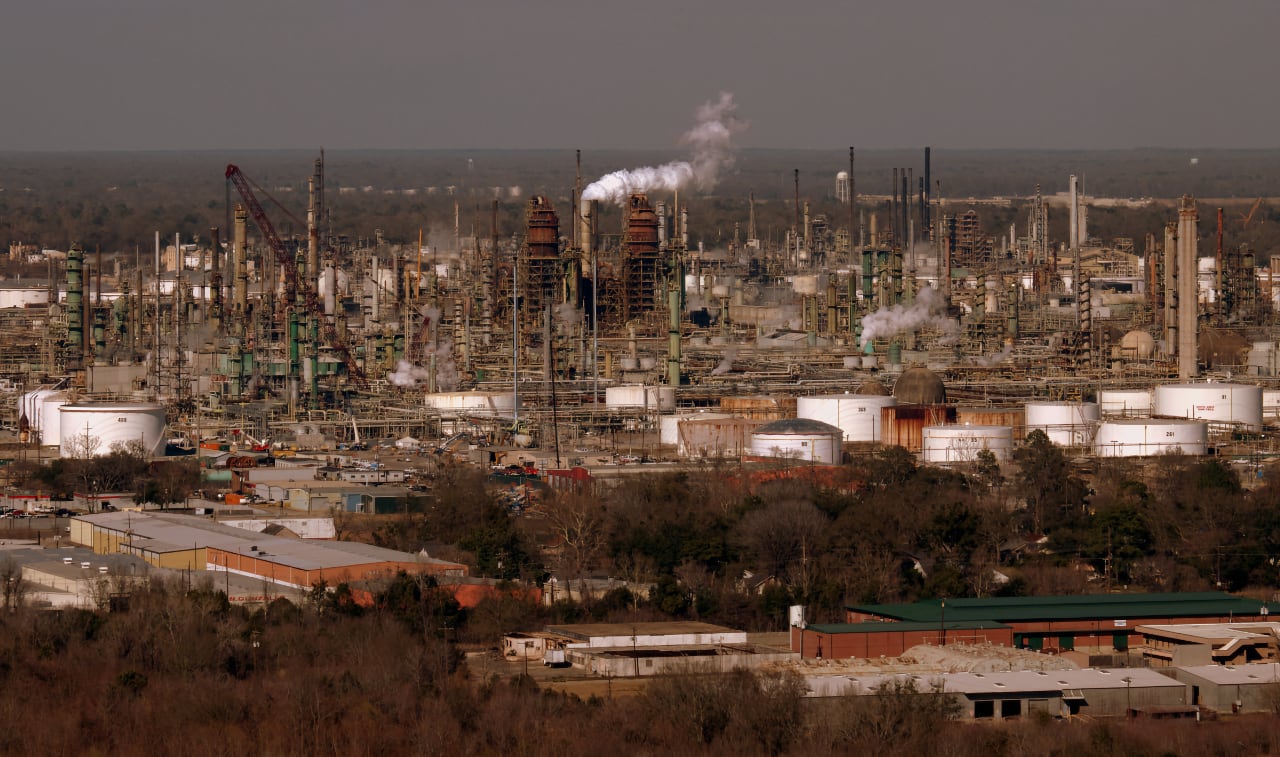Displaying items by tag: climate emergency
Slowing the burn: Nine ET counties collaborate on climate plan
 Hurricane Helene was fueled by unusually warm waters in the Gulf of Mexico before it began its deadly and destructive push into East Tennessee and Western North Carolina. Scientists said global climate change made the storm considerably worse than it would have been in natural conditions. East Tennessee leaders announced a regional climate plan focused on reducing local contributions to climate change. Thomas Fraser/Hellbender Press
Hurricane Helene was fueled by unusually warm waters in the Gulf of Mexico before it began its deadly and destructive push into East Tennessee and Western North Carolina. Scientists said global climate change made the storm considerably worse than it would have been in natural conditions. East Tennessee leaders announced a regional climate plan focused on reducing local contributions to climate change. Thomas Fraser/Hellbender Press
Plan suggests actions on public and private levels to slow warming climate
KNOXVILLE — Area leaders unveiled a plan to improve air quality, health and quality of life across the metro region.
Breathe: A Climate Action Plan for the Knoxville Region, released Nov. 12, is the result of a two-year collaboration, and is the region’s first comprehensive climate action plan.
The city collaborated with regional leaders and a working group of representatives from over 50 organizations across nine counties to help shape the plan’s goals and strategies, ensuring they reflect the region’s priorities and constraints.
The plan was funded through the U.S. EPA Climate Pollution Reduction Grant program, which the city of Knoxville was awarded in 2023.
Individuals can make personal climate pledges and find resources to help achieve them on the project website. The plan and all related materials, pledge, and list of resources can be found at www.knoxbreathe.org.
Helene: Haul water, rescue pigs, help neighbors: How Warren Wilson College students confronted climate chaos
 A student farm leader takes care of pigs at Warren Wilson College in Swannanoa. Most of the college’s pigs were recovered following fatal flooding from the Swannanoa River on Sept. 28, 2024. Warren Wilson College
A student farm leader takes care of pigs at Warren Wilson College in Swannanoa. Most of the college’s pigs were recovered following fatal flooding from the Swannanoa River on Sept. 28, 2024. Warren Wilson College
Collective action helps alleviate climate anxiety in wake of Hurricane Helene
This story was originally published by The Revelator.
Mallory McDuff teaches environmental education at Warren Wilson College.
SWANNANOA, N.C. — “We need 10 people on flush crew, five to clean out the fridges in the science building, and 15 to clear trees on the roads! We’re gonna do this together!”
This wasn’t a pep rally or a community service event. It was the morning meeting called at 9:30 a.m. each day by campus leaders in front of the cafeteria at the small college where I lived without power or water, after the climate disaster of Hurricane Helene devastated our community in Western North Carolina.
“We know the Swannanoa Valley has been hit especially hard,” the college president told the group of students and employees. “And we are here for this college and for the greater community. This is our work together.”
That day I joined my neighbor Tom Lam chain-sawing his way across campus with a crew of students clearing brush along the way.
“Now gather ‘round so you can see how to sharpen this chainsaw,” Tom said in his booming Jersey voice, pulling on his suspenders after we’d cleared trees that crushed a neighbor’s car.
I’ve spent 25 years teaching environmental education, raising two daughters, and living at this 1,000-acre campus where all students work in jobs in places like the farm, garden, forests, and even fiber arts. And I think this might be one model of how to live in community in a climate emergency.
- how to live in community in a climate emergency
- warren wilson college
- hurricane helene warren wilson
- hurricane helene
- hurricane helene local impacts
- swannanoa
- swannanoa river
- mallory mcduff
- hurricane helene livestock
- climate emergency
- climate activist
- was warren wilson hit by hurricane
- what did warren wilson do during hurricane
- extreme weather
- southern appalachians natural disaster
Southeast highlighted in latest national climate assessment
 The Tennessee Valley states (TN, AL, MS) are among the most irresponsible in their languid pondering about climate change mitigation. Illustration from the 5th National Climate Assessment
The Tennessee Valley states (TN, AL, MS) are among the most irresponsible in their languid pondering about climate change mitigation. Illustration from the 5th National Climate Assessment
Urgent investments in local solutions are needed now more than ever as climate impacts grow across the South
The 5th National Climate Assessment, released this week by the U.S. Government, reports on the current climate trends, impacts and solutions across the country. It underscores the urgency and opportunities for meaningful climate action.
This year, it includes a chapter highlighting how climate is impacting our Southeastern landscape and communities, plus what trends we can expect in the years ahead.
The report substantiates what we’ve been witnessing on the ground: Extreme heatwaves are already more common, sea level rise is encroaching into coastal communities and throughout the region, we’re seeing more flooding from increasingly unpredictable, volatile storms. According to the report, the country now sees a billion-dollar weather disaster every three weeks on average. In the 1980s, that average was every four months.
- 5th national climate assessment
- southern environmental law center
- alys campaigne
- national climate assessment
- climate change mitigation
- sea level rise
- climate emergency
- resilience
- climate leadership
- south carolina strategic statewide resilience and risk reduction plan
- climate hazard
- climate disaster
- black and brown community
- lowincome community
- vulnerable community
Juneteenth: An Urgent Call for Climate Solutions
 ExxonMobil’s Baton Rouge, LA refinery, Feb. 11, 2016. Later that day, shortly before midnight, a massive fire broke out, bathing the night sky in an orange glow visible for miles around.
ExxonMobil’s Baton Rouge, LA refinery, Feb. 11, 2016. Later that day, shortly before midnight, a massive fire broke out, bathing the night sky in an orange glow visible for miles around. ![]() Jim Brown/Flickr
Jim Brown/Flickr
Generations of Black Americans have faced racism, redlining and environmental injustices, such as breathing 40 percent dirtier air and being twice as likely as white Americans to be hospitalized or die from climate-related health problems.
AMERICA TODAY — This week, NPR’s Living on Earth podcast and illustrated transcript elucidates how relevant the broader meaning and historic context of Juneteenth is for all American citizens and residents.
Host Steve Curwood discusses with Heather McTeer Toney her new book, ‘Before the Streetlights Come On: Black America’s Urgent Call for Climate Solution.’
McTeer served as the Southeast Regional Administrator of the Environmental Protection Agency in the Obama administration and is now Executive Director of Beyond Petrochemicals. She argues that the quest for racial justice must include addressing the climate emergency and that the insights of people who experienced the negative health and socio-economic impacts of the petrochemical industry must be tapped to develop solutions that will work on the ground.
- juneteenth
- environmental justice
- racial justice
- heather mcteer toney
- social justice
- racism
- air pollution
- petrochemical
- petrochemical industry
- living on earth
- npr podcast
- slavery
- history of slavery
- climate emergency
- cancer alley
- steve curwood
- public health
- environmental racism
- mississipi river
- baton rouge
- black vote
- black and brown people
- interfaith power and light
- evangelical on the right
- religious leadership
- evangelicals for the environment